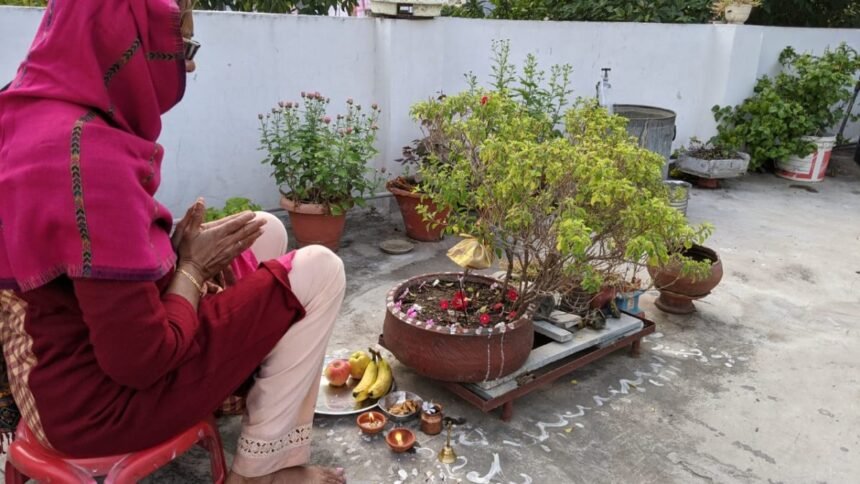Tulsi Vivah, an auspicious Hindu ritual, marks the ceremonial marriage of the sacred Tulsi (Holy Basil) plant to Lord Vishnu or his avatar, Lord Krishna. This annual event, observed on the Ekadashi (11th day) of the Kartik month in the Hindu calendar, holds profound significance in Hindu culture. This year it will be celebrated on 24th of November according to Drik Panchang, Tulsi Vivah falls on Dwadashi Tithi of Shukla Paksha in the month of Kartik.
The Symbolism of Tulsi:
The Tulsi plant is revered for its medicinal properties and spiritual significance. It is believed to be an earthly manifestation of the goddess Lakshmi, embodying purity and devotion. The plant is considered sacred in Hindu households, often found in courtyards or near temples.
The Divine Union:
Tulsi Vivah symbolizes the marriage of Tulsi to Lord Krishna or Vishnu, depending on regional traditions. The ceremony is conducted with great devotion and rituals, often performed in temples or homes. It is believed that participating in Tulsi Vivah brings prosperity, marital bliss, and spiritual well-being.
Ceremonial Rituals:
The ceremony typically involves a ceremonial marriage setup for Tulsi and the idol or image of Lord Krishna. Elaborate rituals, including the recitation of Vedic hymns and mantras, are performed by priests and devotees. The event is witnessed by a gathering of family and community members.
Spiritual Significance:
The marriage of Tulsi and Lord Krishna is not just a symbolic ritual; it holds deep spiritual significance. Devotees believe that participating in Tulsi Vivah helps purify the soul, removes sins, and strengthens the bond with the divine.
Festive Atmosphere:
The celebration of Tulsi Vivah creates a festive atmosphere, bringing together communities in joyous observance. It is a time for families to come together, share meals, and partake in the collective joy of honoring a sacred tradition.
Tulsi Vivah 2023 is not just a religious ceremony; it is a celebration of devotion, tradition, and the timeless bond between the divine and the earthly. As families and communities come together to observe this sacred union, they reinforce the cultural richness and spiritual depth that Tulsi Vivah represents in the tapestry of Hindu traditions.






